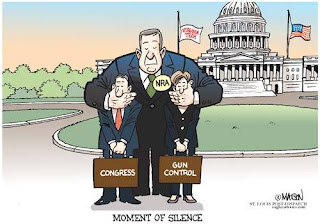Journal 1-2
Bowling For Columbine Overview
I. Honestly, I didn't really get any new information reguarding the answer to my questions from last week. However, after watching Bowling for Columbine, I have a little better understanding of the power of fallacies. Michael Moore uses tons of them to make his points. As a viewer, I found myself being easily fooled by his media tricks.
II. This week we watched Bowling for Columbine. I really enjoyed it, actually, and took a lot out of it. Michael Moore takes real life conflicts and reflects on them in a way that is overly sarcastic and funny. He does a really good job of holding the viewer's attention. By turning serious matters into dramatic jokes, Moore is able to pull people's opinion one way or another.
One fallacy that is used very frequently in this video is phantom questioning. He cuts out certain sections of the video clips from various interviews, making the person speaking look like a moron. We often see the response of the person, but not the question that was asked. This causes the person to appear different than they actually are.
Another thing that stuck out to me during the video was the "Wonderful World" montage. It was ridiculously easy to pick out the parts of the cartoon that were completely inaccurate. However, any normal viewer who is not asked to analyze the content might not notice the historical inaccuracy. Wrong ideas were expressed about the following groups: Indians, white people, the KKK, the NRA, and the British.
There is one final thing that stood out to me during our exploration of Bowling for Columbine. Someone in class mentioned that it would have been really different for us if we hadn't researched the people and things involved before watching the video. I agree completely with that statement because some people were made out to be way more harmless than they actually are. Also, facts about things like the Oklahoma City bombing and the Columbine High School massacre were altered or dramatized for media effect.
III. One thing I would like to know more about this topic is: When Michael Moore interviews these people, does he tell them that their interview is going to be cropped and dramatized? Are they made aware that he's going to cut certain things out to create a desired effect?



No comments:
Post a Comment